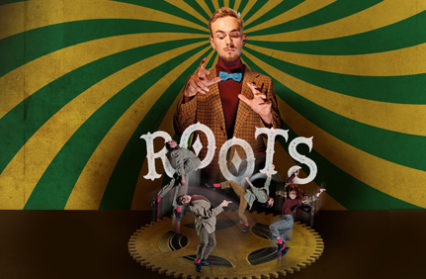Jane Oriel is in Blackwood to review ROOTS by the National Dance Company Wales, a collection of four dances recently performed at the Cardiff Dance Festival.
ROOTS is a collection of four short dances, which differ entirely from each other in mood and content.
Performed to a sell-out house during the recent Cardiff Dance Festival, the audience is far thinner on the ground in the ‘Stute tonight. Blackwood, of course, is no international, populous city with a vibrant arts vein but for local fans of dance, this is a treat indeed.
Before the start, rehearsal director Lee Johnston offers a few words of description and gentle demystification of what is to come. It is the first time I have seen this done and am aware of the conversation about ways to expand interest in dance. Post-dance Q&As are becoming commonplace as a way of finding the balance between spoon feeding and leaving viewers (from novice to aficionado) to their own devices, but this enlightening introduction seems to have hit the sweet spot.
From the company’s artistic director Caroline Finn, ‘Beside Himself’ is a wonderful oddity. One man’s ego and alter-ego are dressed identically in white vests, boxers, and socks; a mildly absurd look but just right for this pair, who briskly walk together in step, before each tries to dominate. Bringing to mind the earnest, silliness of Wilson and Keppel’s 1934 Sand Dance, the duo, always in full seriousness, do everything to annoy their opposite, short of the custard pie.
There’s so much everyman comedy to be observed in expressions of pride, with deadly-serious, silent film humour throughout. Performers Evan Schwarz and Cyril Durand-Gasselin are terrific.
‘Omertà’, by Matteo Marfoglia, is described in the program as “a moving and powerful piece about the role of women in Italian Mafia society and their route to freedom”.
The first several minutes showed the stage in blackness, with each of the five female dancers in mourning clothes, only becoming visible when the motif-saturated soundtrack instigates spotlights and movement from each in sequence.
The alarming sound-theme forcefully dictates a response to the piece, with the work of the dancers being side-lined as incidental. The cries, gasps and fast-mumbled prayers heighten sympathy and a shared anguish but the effect of the sonic overwhelm is to leave ‘Omertà’ unbalanced.
Lee Johnston’s own work opens the second half, but not until after a few more illuminating words from her.
The duet, ‘They Seek To Find The Happiness They Seem’, takes its title from ‘Cheek To Cheek’, the crooner’s classic but with the words Seek and Seem in opposite places.
This long-married couple might seem happy from the outside but there are problems. The storytelling takes us from heart-stopping, romantic connection, to distance between them. The movement is fluid, poetic and longing, with dance being the perfect medium for when words will not suffice. How exactly to tell the one you love that there’s something wrong and you’re hurting, but how did it happen? A beautiful, deceptively simple work.
The second piece by Caroline Finn ends the show and brings the house down. The notion is a troupe of characters brought to life and controlled by their charming yet sinister master. It doesn’t take long for this dance to take on the qualities of a fable on how not to treat one’s friends.
Like ‘Beside Himself’ earlier, facial expressions guide much of the story. The calculated intent on Ed Myhill’s supercilious face glows as he niggles those under his control. With all dressed in ill-fitting, mismatched suits, there’s an air of circus clowns minus face paint. All are deadly serious as they run through states of dependency, rebellion and independence before, as they say, the chickens come home to roost. Eventually, the master becomes the outsider in this comically astute and hugely entertaining look at societal norms.
Jane Oriel is a regular contributor to Wales Arts Review.












